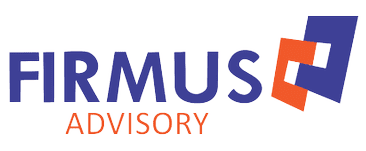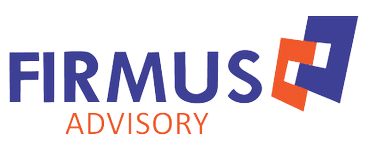In a meeting that was expected to last about 30 minutes, our new client spent the first hour narrating his struggles obtaining permits for his new project in Ghana. It was our first meeting based on a referral from an existing client and he could not help but share his 18 months of frustration in obtaining permits for food products he was importing to Ghana; this had led to delay in the start of the project and increased cost.
Regulatory compliance is a continual process and a shared responsibility for both the company and the regulator. It is a marriage whose success depends on the effective performance and delivery by each party.
Most companies operate with little or no knowledge of the requirements of the sectors they are involved in. There are internal and external regulatory requirements within the legal and regulatory framework for doing business in Ghana which extends beyond the initial company formation and varies depending on the business objectives.
What to expect in Regulatory compliance in Ghana

- High regulatory charges
- Duplicity of agencies to deal with
- Lack of clear guidelines on compliance
- Conflicting feedback on compliance from agencies
- Requirements keep changing
As far regulatory compliance in Ghana is concerned, we see two main issues;
- Non-compliance (intentional or unintentional)
- Lack of monitoring and enforcement by sector agencies and regulators
Every business is regulated by laws or policies which must be adhered to in order to efficiently attain goals and stay free from external pressures for non-compliance. Regulatory compliances differ from business to business depending on the activities and the scope of work. However, there are some basic compliances that apply to all organizations:
- Business registration and filing of amendments: Every business has to register as a legal entity before it can commence operations in Ghana. Similarly, any amendment in the business objects, name, address, location etc. has to be effected at the Registrar General’s Department.
- Tax registration and monthly filings: All businesses are required to pay taxes (Pay-as-You-Earn (PAYE), Value-Added Tax (VAT), Income Tax and Corporate Tax to the Ghana Revenue Authority (GRA).
- Registration for Social Security and National Insurance (SSNIT): It is mandatory for all companies, both local and foreign, to pay monthly SSNIT contributions (Tier 1 & 2) for or on behalf of their Ghanaian employees.
- Registration with Ghana Investment Promotion Centre (GIPC): Where the ownership of a business involves a foreign investor, the company will be required to register with the Ghana Investment Promotion Centre.
Classification of organization’s regulatory compliance
There are internal and external regulatory compliance requirements for every business. The internal regulatory compliance refers to laws, regulations and policies within the organization that govern the activities of the company. These policies are often developed by the board or management to guide and direct the people in the company towards the organization’s objectives or operations. The external regulatory compliances are those instituted by government and its agencies to direct, control and protect the activities of the company within the sector. How then do we improve our internal and external compliance systems?
Improving your organization’s regulatory compliance systems
1. Define your business activities and identify the key areas of regulatory compliance
It is necessary for a company to establish clear business objectives and also identify all permits and licenses that are required before commencement of business. For example, a company may register with multiple business activities such as mining, export of gold, drilling, road and building construction, manufacturing of plastic bowls and general trading. In such a scenario, the company would be required to obtain a license from the Minerals Commission, manufacturing license from the Ghana Revenue Authority (Customs Division), a permit from the Ministry of Water Resources, Works and Housing, etc. before commencing any of the aforementioned business activities.
We advise that companies avoid stating multiple business activities as all projects may not be commenced at the same time. In the situation cited above, it would bring about the unnecessary stress of having to obtain the permits before starting the business.
2. Internal regulatory compliance must have a DESIGNATED JOB OWNER
Make regulatory compliance an integral part of the organization. Employ a professional (organization or individual), with the requisite skills to ensure that both internal and external compliances are met through developing and implementing an effective compliance program. This organization or individual should be someone other than the accountant of the company. Some organizations have relegated all compliance issues to the office of the Accountant or Human Resource personnel.
Know that the profession or knowledge of the accountant may be limited to only their scope of work, not general compliance. Hence, leaving such responsibilities to them may only compound the company’s risk of being non-compliant. The appointed organization or person should be held responsible and accountable for any issue of non-compliance.
3. Keep up- to- date records
Make a list of all pending issues and frequently refer to regulations for the necessary actions to be taken. Simple action steps like a schedule of dates for registration or the date on which a certificate or permit was issued, the expiry date for renewal of certificate or permit, will save the organization penalties resulting from non-compliance. Do not keep the schedule as an “album” where you flip through only, but as a guide and checklist for the necessary actions to be taken.
Keeping copies of all documentations and letters submitted to government agencies or regulatory bodies for future reference. This may prove very beneficial.
4. Stay updated with regulatory policies
From time to time, laws and policies are either reviewed or repealed and new ones introduced. It is, therefore, necessary to be abreast with changes in economic trends, amendments to the laws, legislation and policies so as to stay compliant. For example, the recent change in the VAT rate for wholesale and retail companies from 17.5% to 3% requires all affected companies to take the necessary steps to have their VAT invoice books replaced.
5. Renew your registration certificates or permits
Most licenses and government permits are subject to renewal annually or bi-annually. Every amendment that occurs after the registration needs to be filed with the Registrar of Companies and subsequently, notice given the government agencies or regulator responsible for your organization. For instance, when a company changes its name, the new name must reflect on all documents at the Registrar of Companies and the various government agencies. It is advisable to renew your registration at least a month to the date of expiration to avoid unnecessary stress and pressure when the need arises to produce such documents.
6. Assessment and evaluation
It is very important that regular checks are made to ensure that all areas of compliance have been fully and effectively adhered to. Assessing and measuring the organization’s performance against standards and regulatory compliance is key to effective compliance.
7. Penalties for non-compliance
It is important to note that failure to comply or adhere to regulations may attract penalties. For example, delay in filing of returns on time at the Registrar General’s Department attracts a penalty of GH¢300.00. Also, failure to pay VAT attracts a penalty of GH¢500.00 and GH¢10.00 each day; delay in renewing work permits attracts a penalty of $100 dollars per month, etc.
It is therefore important for all organizations to note that non-compliance can be expensive and cause the organization to lose out on some new business opportunities, tenders or projects. Follow the right procedures, properly assign the compliance function within the organization and above all stay compliant.
What has your experience been regarding regulatory compliance in Ghana? We will be happy to have your comments on this.






2 Comments
Just how would you utilize $68894 to make even more money: https://get-2-btc-per-day.blogspot.tw?z=57
Invest $ 9284 and get $ 5142 every month: https://kl-po-lo.blogspot.pt?ol=68
Earnings on the Internet from $6499 per day: https://q1-get-1000usd-per-week-162.blogspot.com.tr?m=31
76 Ways to Make Money Online From $8594 per week: https://q2-get-4000usd-per-week-162.blogspot.com?q=67